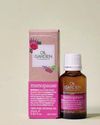Renewable energy is booming and there are more than 200,000 wind turbines worldwide. But concerns have been raised that wind farms may cause health problems in the form of Wind Turbine Syndrome (WTS). We examine the arguments to see if WTS really exists.

In rural areas it is increasingly common to see, dotted across the landscape, giant metal poles with three hypnotically rotating blades. To some people, wind turbines are visually appealing; to others they are ugly. For a third group, they are a means to an end when it comes to producing large quantities of renewable energy.
For a long time, wind-power generation capacity has been growing exponentially in Australia, New Zealand and many other countries. Renewables are becoming cheaper as the technology evolves and their economy of scale further improves; they have already undercut fossil fuels in many countries. The number of wind turbines worldwide now exceeds 200,000.Attitudes to wind power are broadly positive, with 85 per cent of people surveyed in New South Wales being very supportive. In New Zealand, 77 per cent were found to be favourable. Yet despite these majority sentiments there has been a pushback against wind from certain think tanks, politicians and members of the public.
When resistance to Australia’s windfarm plans peaked in the early 2010s, two entities spearheaded anti-wind activism. One was known as the Waubra Foundation while the other was a network of Landscape Guardians groups. Both have links, either direct or indirect, to fossil fuel interests.
Wind turbine syndrome
Individuals living fairly close to wind farms can develop a cluster of health symptoms that may include dizziness, migraines, high blood pressure or depression. Sleep deprivation is another issue — sufferers claim to be woken from sleep by turbine sound. These symptoms are often referred to as wind turbine syndrome (WTS), a condition that faces a major challenge: its existence is not accepted by the scientific mainstream.
この記事は WellBeing の Issue 179 版に掲載されています。
7 日間の Magzter GOLD 無料トライアルを開始して、何千もの厳選されたプレミアム ストーリー、9,000 以上の雑誌や新聞にアクセスしてください。
すでに購読者です ? サインイン
この記事は WellBeing の Issue 179 版に掲載されています。
7 日間の Magzter GOLD 無料トライアルを開始して、何千もの厳選されたプレミアム ストーリー、9,000 以上の雑誌や新聞にアクセスしてください。
すでに購読者です? サインイン

YOGA FOR IMPERFECTION
Life is messy and we all make mistakes, but by embracing imperfection, we can begin to accept all parts of ourselves.

Creating the foundations of ritualist self-care
As a busy mum of a three-year-old and expecting another baby, finding time for self-care often feels like a luxury.

Are you doom spending?
If \"doom spending\" has become your go-to for coping with stress, you could be making withdrawals from not just your bank account, but your health too.

THE POWER OF music
Most of us enjoy music. But science shows music is central to being human and its effect on us is far more astonishing and impactful than we realise. Music is fundamental to life.

SYNTHETIC FOODS
Synthetic, or genetically modified, fake meats and the like attempt to mimic real meat in both looks, taste and texture. But how much do we really know about the production process and how do they affect the environment and our bodies?

Embracing the power of nature
Menopause is more than just a biological change, it represents a significant life stage that can present numerous challenges - from hot flushes and mood swings to fatigue and sleepless nights.

Jan Fran
From a young age, Jan Fran's deep curiosity and keen interest in social issues sparked her journey into the world of journalism. As an accomplished journalist, media commentator and broadcaster, Fran's passion for storytelling has always been driven by a desire to explore, question and shed light on the world around her.

Helping teen girls thrive
Statistics reveal that many more teen girls are struggling with mental health issues. What's going on with them? More importantly, what can we do to help them flourish?

Your ageing eyes
Your eyes work hard for you every waking minute. It is no surprise that how your eyes age will be determined by how you protect them. Eating the right foods can go along way towards ensuring that your eyes stay healthy for a lifetime.

The bottom line
During the Couid pandemic, we were shocked to see people fighting in supermarkets over toilet paper and to see empty shelves that had once held roll after roll. The reasons behind the run for toilet paper during this time reflect the unique place that it holds in our psyche and are deeply rooted in our history.